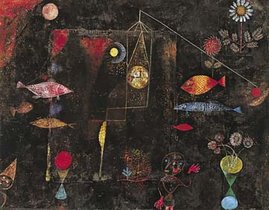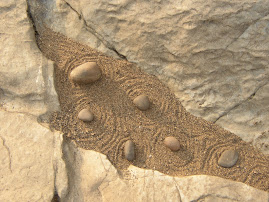I first tried it on Spring Creek in Berks County, PA. This is not a known trout stream, but it had a nice population of both wild browns and rainbows. Early on a July morning, I tied on my creation, and began to fish up the creek. And, I was pleasantly surprised. I caught trout in every hole that seemed liked good holding water. Over the years, I have used my fly to take trout in both freestone and limestone creeks. Many a brown, rainbow and brookie has been deceived by this treacherous bait.
The fly is a nymph with a silver bead, and I think it is effective, because it gets down quickly and imitates a lot of different aquatic creatures. To freestone trout, it is a caddis larvae; to limestone trout, it could be a caddis, or perhaps a scud, and stocked trout, I'm sure, take it because it looks somewhat like a food pellet.
The fly, as I have mentioned is simple to tie, which has advantages for me. I don't have the time to tie like I used to, and I can crank out a good supply in a half an hour. The materials are inexpensive, which is also beneficial.
Tie some up, and give them a try.
Hook: Mustad 3906B, or equivalent, 12-16 (14 is my favorite)
Thread: Tan, 8/0
Bead: silver to match hook size
Underbody: lead wire covering half the shank, and tucked into the bead
Dubbing: Natural "haretron" (hare's body with antron carpet fibers)
Tips: when dubbing, don't use wax; dub loosely so fibers stick out. Wrap forward getting gradually thicker towards the bead.





2 comments:
Looks like a Walt's Worm - very 'buggy'!
The taper is similar, but Walt's worm lacks a bead, and is tied on a bigger hook.
Post a Comment